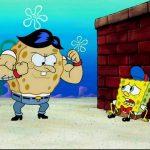Whoa man, you’ll never guess what a “bogart” is.Can You Decode The Slang Terms People Used At Woodstock?
Quiz: Decipher The Slang Terms People Used At Woodstock
Are you curious about which Eastern religion aligns with your values? Take our quiz to find out!
Eastern religions, such as Hinduism, Buddhism, Taoism, and Confucianism, have been around for thousands of years and have influenced countless people around the world. Each religion has its own unique beliefs, practices, and values that can resonate with individuals in different ways.
Our quiz will ask you a series of questions about your beliefs, values, and lifestyle to determine which Eastern religion matches closest to your personal philosophy. Whether you're seeking spiritual guidance, looking to expand your knowledge of different religions, or simply curious about where you fit in, this quiz is for you.
So, are you ready to discover which Eastern religion aligns with your values? Take our quiz now and find out!





